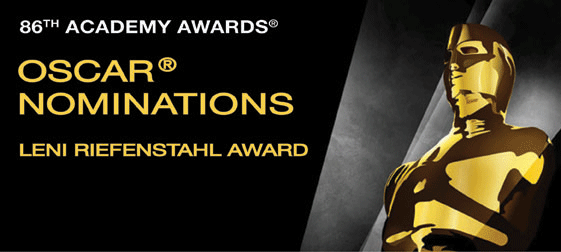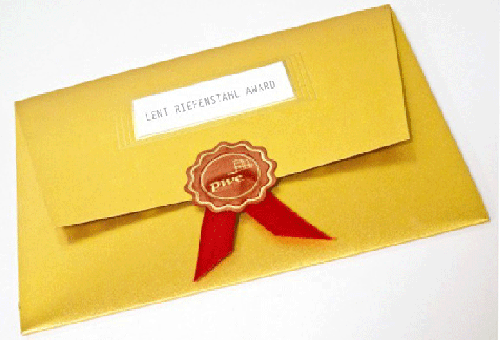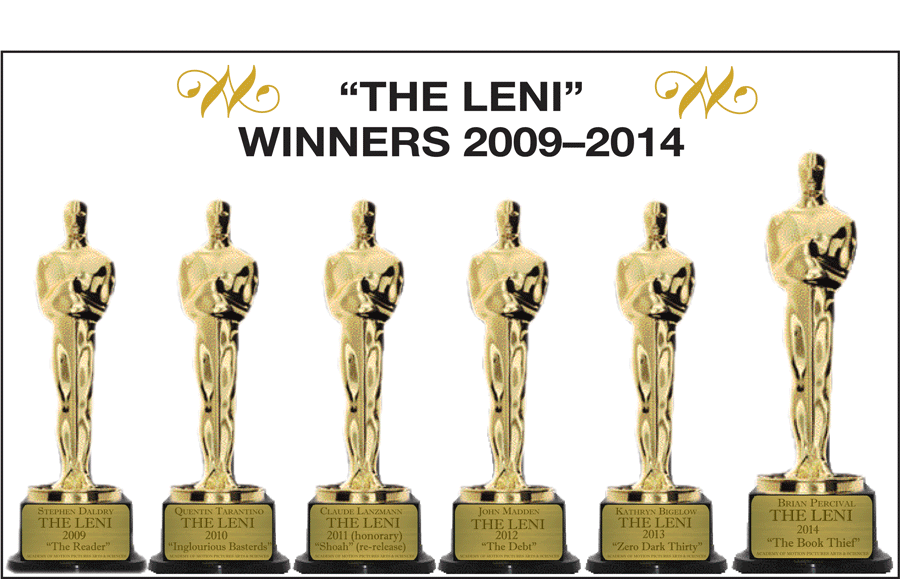
(Fanfare theme music) VOICE OVER: “Live from WTFN’s Los Angeles studios, it’s the Oscar edition of The Cutting Room! Please welcome your host Lance Boyle!” (Lance Boyle, dressed elegantly, enters from stage left, waving to the cheering studio audience, and takes his place in the usual TV set of club chairs, coffee table and movie posters. The applause dies down.)
 |
 |
BOYLE: “You say these films celebrate their disturbing subject matter, but the criminals are caught and punished. Besides, Hollywood has been churning out movies like this for years.”
KALE: “That’s very true, and that leads me to my next point. American Hustle and The Wolf of Wall Street are set before the World Trade Centre/Pentagon attack and the rise of our neo-fascism, which is the ruling political and economic ethos of our times. The real-life banking scandals over the past seven or eight years dwarf anything the financial miscreants in these films committed, yet the heads of Goldman Sachs, Bank of America, Chase Manhattan and other banks have not been caught or punished, much less charged with any crime. Because the villains in these films are caught and punished, these films reinforce the outdated notion that financial crime is against the law.That these films are expertly acted and produced adds to their ability to convince people to compartmentalize these real-life events, not to see them as parodies of real life.”
BOYLE: “What about 12 Years a Slave? Does it also have an anachronistic propaganda element?”
KALE: “Yes, but it’s more subtle. Of course, systematic, physical brutality toward blacks and the slavery depicted in the film no longer exists, but since we’ve just had Django Unchained, we didn’t need another graphic, distrurbing film about black suffering, even if it is a true story.”
BOYLE: “So, why do you think it was made?”
KALE: “Slavery films are great for giving audiences a simplistic, black-and-white view of their society. Moviegoers aren’t supposed to understand slavery; they’re just supposed to condemn it and think themselves lucky that they live in a country that did away with it, except…it didn’t. The U.S. just tweaked slavery a bit and spread it over a larger section of the population. Today, slavery has been made ‘legitimate’ as poor Americans—not just blacks —are forced to survive on part-time, minimum-wage service jobs at places like McDonald’s or Walmart, and toil at the mercy of abusive managers. These modern ‘wage slaves’ have no job security or health benefits and are treated like possessions, not people. In fact, in the case of Walmart, the company takes out life insurance policies on their employees and cashes in when they die. Bereaved relatives get nothing.
“Climbing out of slavery is virtually as impossible for these modern slaves as it was for the slaves and serfs of another era. Thus, 12 Years a Slave is not only a monument to cinematic redundancy but it compartmentalizes a horrible part of our history to distract us from the contemporary reality of the underlying theme.”
 |
“Because the villains in [American Hustle and The Wolf of Wall Street] are caught and punished, these films reinforce the outdated notion that financial crime is against the law.” Miriam Kale | ||
KALE: “Ah, but the difference here is that there is no obvious disconnect between reality and ‘movie reality.’ The events in Gravity could happen and to some degree have happened, although the story is fictional. The scientific information and depictions of life in space are also generally accurate, which is a refreshing change. As entertainment, Gravity is breathtakingly beautiful and a reminder that the U.S. can represent something other than torture, tyranny, cronyism and corruption. So, for accuracy, grandeur, and optimism it gets my vote for Best Picture.”
BOYLE: “Which do you think will win, though?”
KALE: “Since both slave pics Lincoln and Django Unchained lost last year, I think the academy will rationalize giving it to 12 Years a Slave, which would be a shame.
BOYLE: “I’m waiting for someone to make a movie about the story of Palestine—68 years a slave—about how an entire Semitic people were made slaves by invading European Jews.”
KALE: “The whole world is! In view of how the usually servile U.S. Congress is frustrating Israel’s warmongers and how the BDS movement is growing, that day may not be far off.”
BOYLE: (to camera) “Well speaking of Israel and American servility what’s your pic for the Leni, for outstanding achievement in Holocaust Propaganda?
KALE: “This year we have what I think is the perfect example of why the Academy finally recognized the need for a separate award for Holocaust® movies. Do you remember which picture won the first Leni?”
BOYLE: “Of course! The Reader, starring Ralph Fiennes and Kate Winslet.”
KALE: “Well, this year’s winner is a bit similar. Open the envelope to see my prediction. (She hands Lance Boyle an official-looking Academy envelope. He opens it along the seal, reads the card and nods in agreement.)
  |
|
|
BOYLE: “Yes, I see what you mean about the similarity between the two movies. ”
KALE: “But the similarity is more than a superficial. The New York Times, whose Holocaust® sympathies are beyond question, saw fit to mock The Book Thief for being stylistically insubstantial. Here are a few choice quotes from Stephen Holden’s review.
“ ‘[The Book Thief]…looks and tastes like a giant sugar cake whose saccharinity largely camouflages the horrors of the war. Like a caring dentist reassuring a frightened child, it purveys a message: “Don’t be afraid. I’ll try not hurt you, although you might feel a little pinch.
‘The actors play their characters like storybook figures imagined by a smart, curious child.
‘John Williams’s score — a quieter, more somber echo of his music for Schindler’s List — lends the film an unearned patina of solemnity, for The Book Thief is a shameless piece of Oscar-seeking Holocaust kitsch.’”
BOYLE: “ ‘A shameless piece of Oscar-seeking Holocaust® kitsch.’ What a great endorsement of the Leni! Even the media’s Holocaust® bible recognizes that Holocaust® movies skew nominations.”
KALE: “But this is not a new phenomenon. Remember the furour five years ago with The Reader?”
BOYLE: “Something Kate Winslet said?”
KALE: “Well, that’s what started it. On Aug. 4, 2005, Winslet appeared on Ricky Gervais’s satirical show Extras, and spoke about her ‘need’ to do a Holocaust® movie. I brought a clip with me.
BOYLE: “Well, then, let’s look at the monitor.”
KALE: “As you see, Winslet’s character not only acknowledges the pointless redundancy of Holocaust® movies, but also understands the Academy’s bias toward them; hence, her quip that she has to do one if she hopes to get an Oscar.”
BOYLE: “But didn’t she later deny that she believed what her character on Extras said, and that getting an Oscar had nothing to do with her decision to do The Reader?”
KALE: “She tried, but I don’t think she was convincing. She said she had forgotten all about it when she signed on to do The Reader, but given the notoriety of her Extras performance the attempt to make light of it didn’t succeed. She tried a little too hard to make light of it, which I took to be a sign of nervousness at having to backtrack to cover up a candid admission that must not be uttered. Here’s that clip, which comes from an infotainment movie show.
Honestly!—The Reader is mainly a love story not a Holocaust® story? Since when does the Holocaust® get second-billing?! Besides, Winslet was not likely to admit to an interviewer that she believes that Holocaust® movies are little more than self-serving careerist schlock. That would have made her look utterly cynical, and it would have bit the hand that feeds her.”
BOYLE: “I noticed that Winslet started to laugh to herself the moment the interviewer mentioned her role on Extras, as if on cue. Do you think that was the idea?”
KALE: “Nobody can know for certain, but I think the interview was partly designed for Winslet to ‘recant’ her heresy in the most face-saving way possible.”
BOYLE: “Of course, as we know Winslet did win the Best Actress Oscar for The Reader, thereby seeming to validate the cynicism she embodied on Extras.
KALE: “If you compare both clips, Winslet is clearly more natural, relaxed and direct as the fictitious nun than she is as herself. Now, that may not be unusual—many performers are uncomfortable being themselves on camera—but I suspect that as a character in a satire, she felt free to say what she could not say as herself.”
BOYLE: “And the comment at the end of the Times review of the The Book Thief adds weight to the truth of satire.
KALE: “Exactly.”
BOYLE: “So you pick Gravity for best picture and The Book Thief for The Leni. We’ll see what happens in a week, (to camera). That's all the time we have for this special Oscar edition of The Cutting Room. For Miriam Kale and myself, good-night)
(Theme music and fade out)
POSTSCRIPT, March 2:
 |